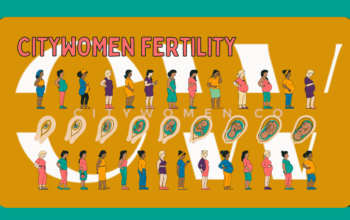
January 20, 2020 at 12:00AM by CWC
You’ve been dreaming about bed all day, the milky white, barely crumb-coated sheets and cloudlike pillows. You’ve been telling your co-workers, “I’m so exhausted,” like dying to nest up and get your beauty sleep. But if you actually hit the mattress and get to snoozing immediately, that terminology might not be accurate. And it’s not totally a battle between being exhausted vs tired. Instead, it’s about experiencing fatigue vs tired.
“Fatigue and sleepiness are a bit different and important to make a difference between,” says Shelby Harris, PsyD, sleep-health expert and author of The Women’s Guide to Overcoming Insomnia. “You can be both, but we often confuse the terms.”
Interesting. So how to tell if you’re in the lure of one or the other?
1. Sleepiness is more about being tired and less about overall energy
ADVERTISEMENT
ADVERTISEMENTKate Spade Autumn/Winter Sale |
If you’re low-key feeling sleepy, your main dilemma is that you really want to curl up on the office couch and embrace naptime. Naptime will be the solution to all your problems. But if fatigue is more your body, mind, and soul trying to run on 8 percent battery without ever going into sleep mode.
“Fatigue is that feeling of dragging a ton of bricks behind you, having no energy, no gas in your tank,” says Dr. Harris. “However, when you’re able to try and nap, sleep just doesn’t come even though you want it to.”
2. Fatigue and insomnia tend to skip together hand-in-hand
There’s kind of a vicious cycle that comes with more chronic fatigue: in essence, you’re so tired you can’t sleep. And then, at least partially because you can’t sleep, you get stuck in this holding pattern.
“Many people with insomnia but no other medical or psychiatric issues often have fatigue, but not sleepiness,” Dr. Harris. “They try to sleep and nap, but it just won’t come”
3. In contrast, if you’re sleepy, you’re likely to conk out if left to your devices
Envision yourself after a friend’s birthday, one that was chaotically held at a sports bar [shudder] on a Tuesday [double shudder] and a 2 a.m. bedtime (stupid Google Because there is no fairness in this world, you have a team meeting right at 10 a.m. You are heavy-lidded, you are propping your head up with your fist and if your boss doesn’t raise her decibel level you are this close to napping on the table. When you’re sleepy, simply and purely sleepy, your body is ready and willing to seek out the rest you need.
“Sleepiness is the actual act of falling asleep, napping and dozing at times when you’re quiet, sedentary, and don’t really always intend to doze,” Dr. Harris says.
4. Sleepiness is usually about specific external or internal issues
Some of these might be situational like we painted above, and the solution there (say it with me) is “No more Tuesday birthdays.” But if you find yourself feeling occasionally drowsy despite clocking in eight hours regularly, Dr. Harris suggests talking to your doctor about issues that could be impacting your sleep quality. Just a few potential suspects might be sleep apnea, circadian rhythm issues, and narcolepsy.
5. Fatigue may be a little bit more difficult to pinpoint
This prolonged energy drain might need a bit of trial and error before you really know what’s going on. Dr. Harris suggests that you start by taking stock of your sleep hygiene. You can do this by limiting caffeine, maintaining a regular bed and wake time, keeping off screens for an hour before bed, limiting heavy meals and liquids within three hours before bed.
“Also work to increase physical activity by exercising, going for walks or doing something to move around,” says “Physical exercise helps improve sleep and reduce fatigue. The key is to be consistent – say, at least 2 weeks. If after two weeks of making changes and sticking with them you haven’t seen any impact on your energy levels, then it’s time to talk with your doctor.”
Oh, and one more thing: if you have a 8 p.m. kickboxing class, make sure to cushion it with at least three hours before bed, too.
If it makes you feel any better (maybe it won’t) exhaustion does probably go under the umbrella of fatigue, in its most intense variation. So exhaustion and profound fatigue are probably interchangeable.
“Exhaustion is more of a general idea that’s extreme and longer-term in nature,” says Dr. Harris. “If you’ve made the above-mentioned changes — working to reduce stress and improve sleep quality and quantity — and are still feeling essentially worn out, struggling to find energy to get through the day, and continue the activities you usually do, consult with your physician regarding possible causes.”
ADVERTISEMENT
ADVERTISEMENTSports Direct Free Delivery on All Orders! |
Suffering from burnout-fueled insomnia? A functional medicine doc has a few ideas for you. And if you’re feeling hungry, here’s a nutritionists top foods for better sleep.
Author Mary Grace Garis | Well and Good
Selected by CWC

ADVERTISEMENT
ADVERTISEMENTUp to 30% off Gift Sets |







